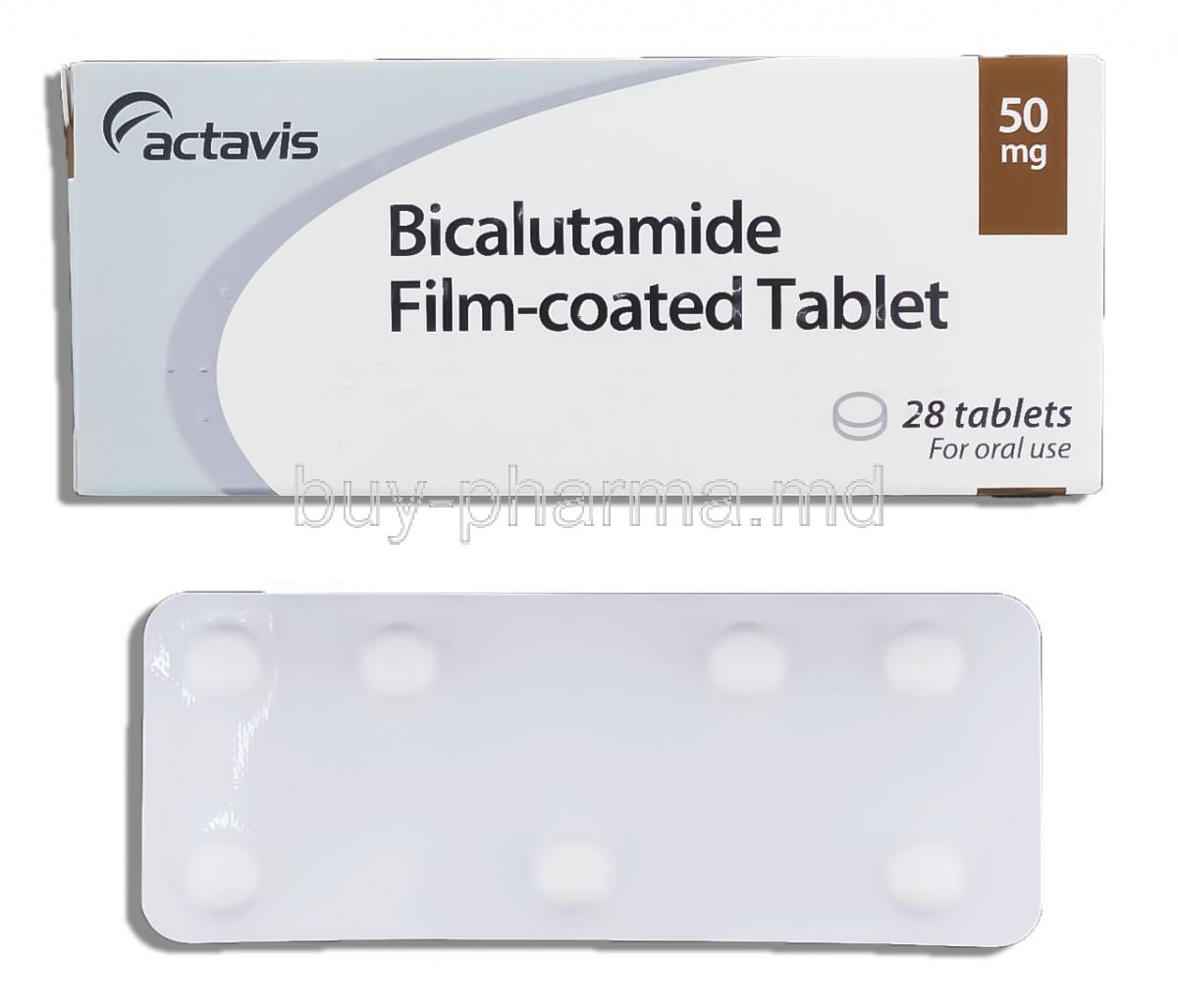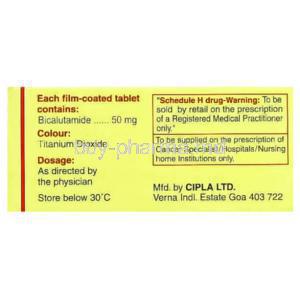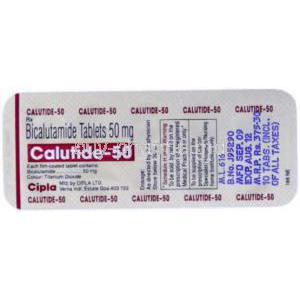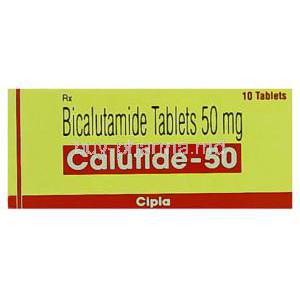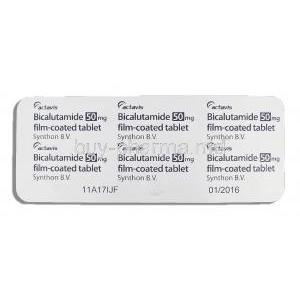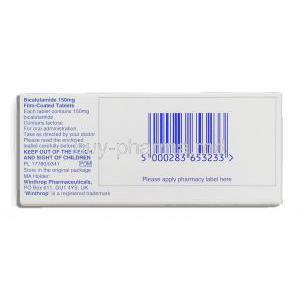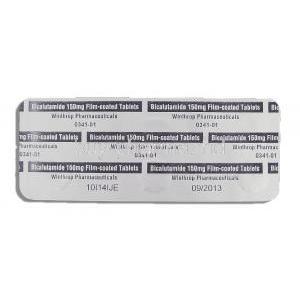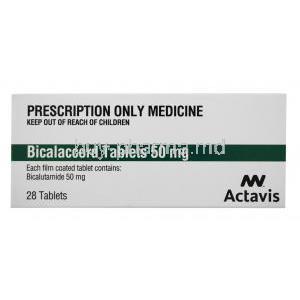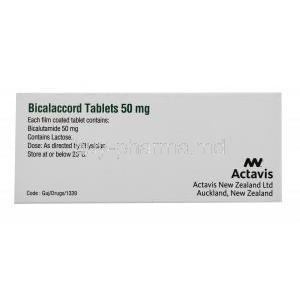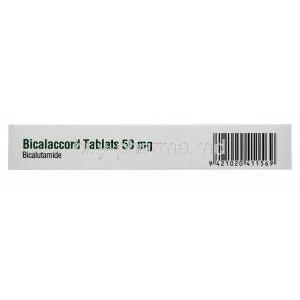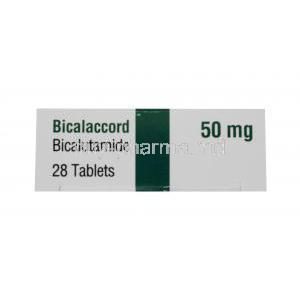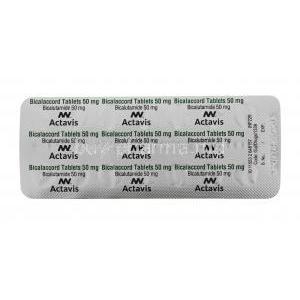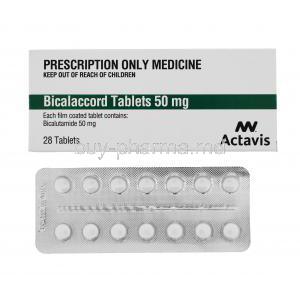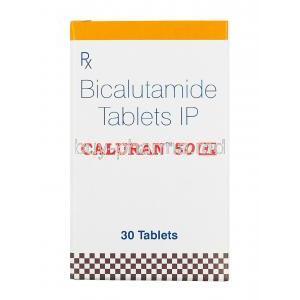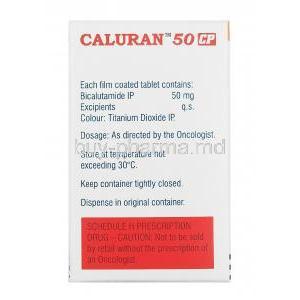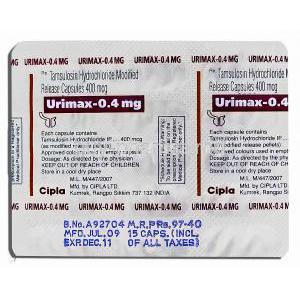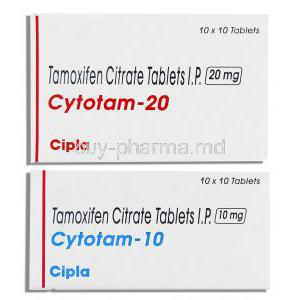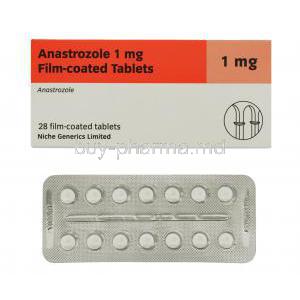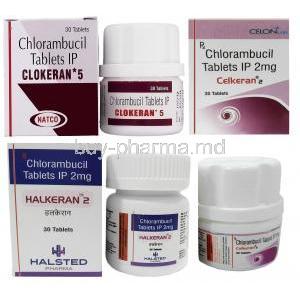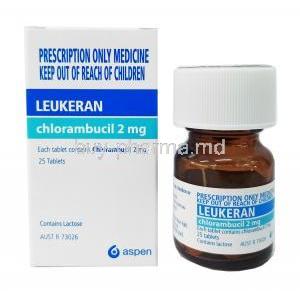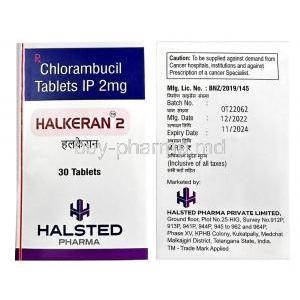Understanding this hormone therapy drug's benefits and potential side effects is essential. This article will explore various aspects of taking Bicalutamide, including its role in cancer treatment and why it is a common choice for patients.
As you read, you'll learn about Bicalutamide's safety profile and its significance in treating prostate cancer. We will also explore the benefits and drawbacks of Bicalutamide and any side effects that could arise during treatment. Furthermore, we'll cover serious side effects that require immediate medical attention.
In addition to these topics, we will explore what happens when you stop taking Bicalutamide and its potential drug interactions with other medications. By the end of this post, you'll be well-informed about your decision to buy Bicalutamide and how it can impact your health journey.
Table of Contents: Buy Bicalutamide
- What Is Bicalutamide?
- The Role of Bicalutamide in Cancer Treatment
- Why Bicalutamide Is a Common Choice
- Bicalutamide's Safety Profile
- The Significance of Bicalutamide in Prostate Cancer Treatment
- Pros and Cons of Bicalutamide
- Common Side Effects of Bicalutamide
- Serious Side Effects of Bicalutamide
- What Happens When You Stop Taking Bicalutamide?
- Bicalutamide and Other Medications
- The average cost for Bicalutamide
- Buy Bicalutamide
What Is Bicalutamide?
Bicalutamide is a type of hormone therapy primarily used to treat prostate cancer. It belongs to a class of drugs known as anti-androgens, which work by blocking the effects of male hormones like testosterone on cancer cells. By doing so, bicalutamide helps slow down or even stop the growth and spread of prostate cancer.
Bicalutamide is typically prescribed with other treatments, such as surgery, radiation therapy, or chemotherapy, for advanced and metastatic prostate cancer patients who are not eligible for surgical intervention. Furthermore, this medication can be used as hormone therapy for individuals not qualifying for surgical intervention.
- Oral tablet: Bicalutamide is available in an oral tablet form, making it easy to administer and incorporate into a patient's daily routine.
- Dosage: The typical dosage for bicalutamide is one 50 mg tablet taken once daily; however, this may vary depending on factors such as age and overall health condition.
- Treatment duration: The length of time a patient takes bicalutamide will depend on their specific circumstances and how well they respond to treatment. In some cases, long-term use may be necessary to manage symptoms effectively.
To ensure optimal results from taking bicalutamide for prostate cancer, patients must follow their healthcare provider's recommendations closely regarding dosage patterns and any potential drug interactions with medications they may be taking concurrently. For more information about these topics and tips and tricks for managing common side effects, visit our sections on Common Side Effects of Bicalutamide and Drug Interactions: Bicalutamide and Other Medications.
The Role of Bicalutamide in Cancer Treatment
Bicalutamide is a widely used medication for the treatment of prostate cancer, particularly in its advanced stages. Bicalutamide works by impeding the activity of male hormones like testosterone, which can promote cancer cell growth and spread. Bicalutamide effectively slows down or stops tumor progression by inhibiting these hormones.
Exploring Its Mechanism of Action
Bicalutamide is a type of NSAA that inhibits androgen receptors on prostate cancer cells, thereby blocking testosterone from attaching to them and stimulating growth. These medications bind to androgen receptors on prostate cancer cells, preventing testosterone from attaching itself and activating cell growth. This mechanism disrupts the signaling pathways that promote tumor development and metastasis.
- Selective Androgen Receptor Modulators: Unlike other NSAAs, Bicalutamide acts as a selective antagonist at specific sites on the receptor protein without affecting others. This selectivity results in fewer side effects compared to traditional hormonal therapies.
- Combined Therapy Approach: In many cases, Bicalutamide is prescribed alongside other treatments like luteinizing hormone-releasing hormone (LHRH) agonists or surgical castration for maximum efficacy. The combination therapy further reduces testosterone levels while minimizing potential adverse reactions.
In addition to its use in treating advanced prostate cancer, research has shown promising results with Bicalutamide's effectiveness against other forms of cancers driven by hormonal factors such as breast cancer (source). Further research is needed to assess Bicalutamide's efficacy in treating other cancers caused by hormonal factors, such as breast cancer.
Bicalutamide is crucial in managing prostate cancer by targeting the hormonal pathways contributing to tumor growth. Its unique mechanism of action and combination therapy approach makes it an effective treatment option for patients battling this disease.
Bicalutamide is a frequently employed medication in cancer therapy, as it can shrink tumors and raise survival rates. Its effectiveness in treating various types of cancers makes it a common choice for many patients. As such, understanding why Bicalutamide is so widely used can benefit those looking into their cancer treatments.
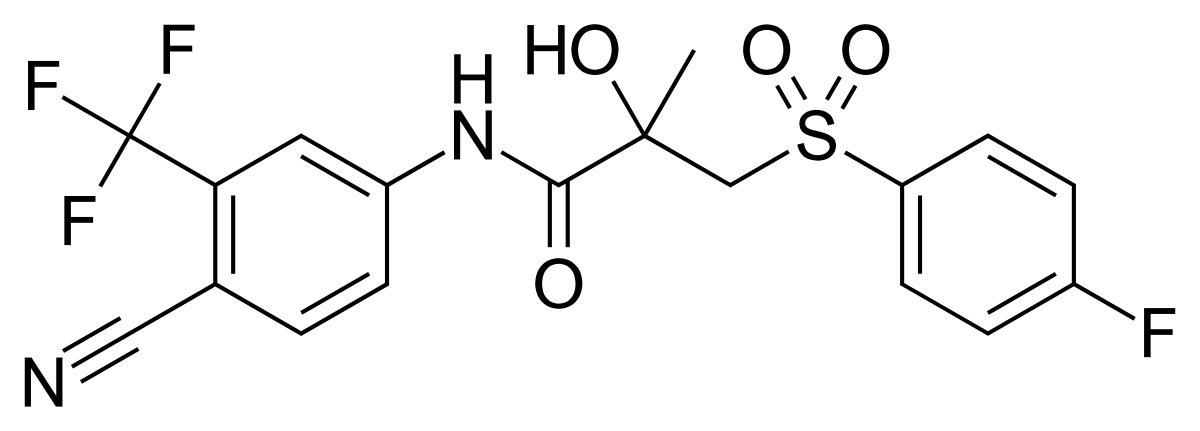
Why Bicalutamide Is a Common Choice
Bicalutamide has become famous for prostate cancer treatment due to its proven efficacy and tolerable side effect profile. Several clinical studies have demonstrated the effectiveness of this medication in treating advanced prostate cancer, mainly when used alongside other therapies.
Analyzing Clinical Studies on Its Efficacy
In a noteworthy study published in the New England Journal of Medicine, researchers observed improved overall survival rates for males with mHSPC when combining bicalutamide and traditional hormonal therapy. Combining bicalutamide and hormonal treatment reduced the risk of death by 38% compared to hormonal therapy alone.
The Journal of Clinical Oncology study found that combining bicalutamide with radiation therapy for localized high-risk prostate cancer resulted in improved outcomes, such as decreased recurrence rates and increased progression-free survival times.
- Evidence-based: These studies provide strong evidence supporting the use of bicalutamide as part of an effective treatment plan for various stages of prostate cancer.
- Tolerability: Besides its proven efficacy, bicalutamide is generally well-tolerated by most patients. This makes it an attractive option for those concerned about potential side effects from more aggressive treatments such as chemotherapy or chemotherapy surgery.
- Versatility: Bicalutamide can be combined with other therapies, such as hormonal therapy or radiation, to enhance treatment outcomes and provide a more comprehensive approach to managing prostate cancer.
Overall, the clinical evidence supporting bicalutamide's efficacy and its tolerability and versatility make it a common choice for patients seeking effective prostate cancer treatment options.
Bicalutamide is a common choice due to its effectiveness and affordability, making it an ideal option for many patients. With such high safety standards, Bicalutamide's Safety Profile will be explored next to understand further why this medication has become so popular.
Bicalutamide's Safety Profile
When considering any medication, it is essential to understand its safety profile. Bicalutamide, an anti-androgen drug used in prostate cancer treatment, has been thoroughly researched for its effectiveness and safety profile. This section will discuss key findings from clinical trials and real-world data highlighting Bicalutamide's safety.
Clinical trials have shown that Bicalutamide is generally well-tolerated by patients with a manageable side effect profile. The most common side effects include hot flashes, fatigue, breast tenderness or enlargement (gynecomastia), and mild liver function test abnormalities. These side effects are usually not severe enough to warrant medication discontinuation.
- Hot Flashes: Hot flashes can be managed through lifestyle modifications such as wearing loose clothing or using fans.
- Fatigue: Patients experiencing fatigue should maintain a regular sleep schedule and engage in light exercise when possible.
- Gynecomastia: Gynecomastia may be treated with tamoxifen or surgical intervention if necessary.
- Liver Function Test Abnormalities: Regular monitoring of liver function tests can help detect any issues early on so they can be addressed promptly.
More serious side effects may occur in rare cases, such as severe liver dysfunction (hepatotoxicity), interstitial lung disease, or painful skin reactions. Patients must be aware of these potential risks and consult their healthcare provider if they experience unusual symptoms.
Bicalutamide's safety profile is generally favorable, with manageable side effects. Therefore, patients must keep their healthcare professionals informed and vigilantly monitor their health during treatment.
Bicalutamide has been demonstrated to be a secure option, rendering it an optimal selection for those desiring to manage their prostate cancer indications. With its proven efficacy in treating advanced cases of the disease, understanding the significance of bicalutamide in prostate cancer treatment becomes increasingly important.
The Significance of Bicalutamide in Prostate Cancer Treatment
Bicalutamide is a vital component in the management of prostate cancer, especially for those with advanced or metastatic stages. It is often prescribed as part of a hormone therapy regimen to slow down the growth and spread of cancer cells by blocking testosterone's effects on them.
Exploring Alternatives to Bicalutamide
Bicalutamide may not be suitable for everyone, so other treatments, such as GnRH agonists and antagonists, could be explored. In such cases, healthcare professionals might consider alternative treatments:
- GnRH agonists and antagonists: These medications reduce testosterone production in the body. Examples include leuprolide (Lupron), goserelin (Zoladex), and degarelix (Firmagon).
- Abiraterone acetate inhibits an enzyme involved in testosterone synthesis, further lowering its levels within the body. Abiraterone is typically used alongside prednisone to manage side effects.
- Enzalutamide: Like bicalutamide, enzalutamide blocks the action of male hormones on prostate cancer cells but tends to have fewer side effects than bicalutamide.
- Radium-223 dichloride: For patients with metastatic prostate cancer that has spread to the bones, this targeted radiotherapy treatment can help relieve pain and slow cancer progression.
Patients need to discuss their needs and preferences with their healthcare team when considering alternatives to bicalutamide. Age, overall health, cancer stage, and potential side effects should be considered when deciding on the most appropriate action.
The significance of Bicalutamide in the context of prostate cancer treatment is immense, with evidence suggesting that it can reduce the chances of relapse and enhance survival prospects. Patients need to understand the pros and cons of this medication before deciding on their treatment plan.
Pros and Cons of Bicalutamide
Understanding the advantages and disadvantages of bicalutamide is crucial for patients considering this medication as part of their prostate cancer treatment. This section will discuss some common pros and cons associated with bicalutamide use.

Pros:
- Efficacy: Numerous clinical studies have demonstrated the effectiveness of bicalutamide in treating advanced prostate cancer, mainly when used alongside other therapies such as hormone therapy or radiation.
- Tolerability: Compared to other anti-androgen medications, many patients can tolerate bicalutamide better due to its lower incidence of severe side effects. This improved tolerability may lead to better adherence to treatment plans.
- Dosage flexibility: Bicalutamide comes in various dosage strengths, allowing healthcare professionals to tailor the medication to each patient's needs and health conditions.
Cons:
- Potential side effects: While generally well-tolerated, some patients may experience a range of side effects from mild (e.g., hot flashes) to more serious ones (e.g., liver dysfunction). Patients on bicalutamide therapy need to monitor any symptoms closely and report them promptly so that appropriate action can be taken if necessary. More information about common side effects can be found in our dedicated section below.
- Specific drug interactions: Bicalutamide has been known to interact with several medications, potentially affecting its efficacy or increasing the risk of side effects. Patients should always inform their healthcare providers about all medicines they are taking, including over-the-counter drugs and supplements. A detailed analysis of potential drug interactions can be found in the section on bicalutamide and other remedies below.
- Cost: Bicalutamide may not be affordable for all patients, especially those without insurance coverage or living in countries where the government does not subsidize it. Comprehending the monetary elements associated with this drug can aid patients in making knowledgeable choices concerning their treatment plans.
Overall, Bicalutamide is a safe and effective medication for treating prostate cancer. Despite its effectiveness, potential risks associated with Bicalutamide must be considered before beginning treatment. Potential issues like fatigue, hot flashes, nausea, and vomiting can occur with Bicalutamide; thus, speaking with your doctor about these risks before starting therapy is essential.
This section discusses the pros and cons of using bicalutamide as a treatment for advanced prostate cancer. While it is effective and well-tolerated by many patients, there are potential side effects to monitor and drug interactions to consider. The cost may also be a factor for some patients when deciding on their treatment options.
Common Side Effects of Bicalutamide
As with any medication, there are potential side effects associated with bicalutamide. Be sure to consult your healthcare professional about the possible side effects of bicalutamide so you can be aware and prepared. The following list highlights some common side effects experienced by patients taking bicalutamide:

- Hot flashes: A sudden feeling of warmth in the face, neck, or chest may occur due to hormonal changes caused by bicalutamide.
- Fatigue: Patients might experience tiredness or weakness while on this medication. Regular exercise and maintaining a healthy sleep schedule can help alleviate fatigue.
- Gastrointestinal issues: Nausea, vomiting, constipation, or diarrhea are possible gastrointestinal side effects that may arise during treatment. Drinking water and eating small meals daily can help manage these symptoms.
- Breast tenderness/swelling: Some men may notice breast swelling or tenderness due to hormonal fluctuations induced by bicalutamide therapy.
- Anemia: A decrease in red blood cells could lead to anemia in some patients using bicalutamide. Regular blood tests will monitor for this condition during treatment.
The severity of the side effects experienced may differ between individuals, depending on age, health status, and dosage prescribed. If you encounter any severe or persistent symptoms while taking bicalutamide, it is crucial to consult your healthcare provider immediately for guidance on managing them effectively.
For more information about how other medications might interact with bicalutamide, please refer to the Drug Interactions section of this article.
Common side effects of Bicalutamide include hot flashes, nausea, and fatigue. Yet, one should be conscious of the potential for severe reactions to this drug.
Serious Side Effects of Bicalutamide
While most patients tolerate bicalutamide well, some may experience severe side effects that require immediate medical attention. It is crucial to recognize these signs and seek help promptly if they occur.
Signs to Watch Out For
- Allergic reactions: Symptoms such as rash, itching, or swelling (especially in the face, tongue, or throat), severe dizziness, and trouble breathing can indicate an allergic reaction to bicalutamide. If you notice any of these symptoms, contact your healthcare provider immediately.
- Liver problems: Bicalutamide has been associated with liver damage in rare cases. Signs of liver issues include persistent nausea or vomiting, loss of appetite, stomach pain, dark urine, yellowing eyes, or skin (jaundice). Notify your physician without delay if any of these indicators arise.
- Blood clotting disorders: Although uncommon, blood clots can form while taking bicalutamide. Seek immediate medical help if you develop symptoms like chest pain, shortness of breath, sudden dizziness, fainting, pain or swelling in one leg (usually the calf), slurred speech, or weakness on one side of the body.
- Anemia: Sometimes, bicalutamide treatment might decrease red blood cells (anemia). Signs of anemia may include exhaustion, pallor, breathing difficulties, and a quickened pulse. If you experience any symptoms of anemia, consult your doctor right away.
Remember that your healthcare provider has prescribed bicalutamide because they believe the benefits outweigh the potential risks. However, it is essential to be aware of these severe side effects and act swiftly if any arise during treatment.
It is essential to be conscious of the probable dangerous consequences before beginning bicalutamide treatment, and it is also necessary to comprehend what may occur when ceasing this medication. Thus, let us delve into the implications of ending bicalutamide usage.
What Happens When You Stop Taking Bicalutamide?
When a patient discontinues bicalutamide, it is essential to understand the potential consequences and how their body may react. Stopping bicalutamide treatment can lead to various outcomes depending on factors such as the stage of prostate cancer, overall health status, and other medications being taken.

Possible Rebound Effects
In some cases, stopping bicalutamide abruptly might cause a temporary increase in testosterone levels. This rebound effect could potentially stimulate prostate cancer growth for a short period. However, this phenomenon varies among individuals and should be closely monitored by healthcare professionals (source). It is crucial to discuss any changes in medication with your doctor before making adjustments.
Risk of Cancer Progression
Discontinuing bicalutamide without proper medical guidance may increase the risk of cancer progression or recurrence. Prostate cancer patients who stop taking their prescribed medications without consulting their healthcare provider put themselves at higher risk for complications related to untreated or undertreated disease (source). Always consult your doctor if you are considering stopping any medication related to your cancer treatment plan.
Withdrawal Symptoms
- Fatigue: Patients might experience fatigue after discontinuing bicalutamide due to hormonal fluctuations during withdrawal.
- Mood Changes: Some people report mood swings or emotional instability when they stop taking hormone therapy drugs like bicalutamide (source).
- Physical Symptoms: In rare cases, stopping bicalutamide may cause physical symptoms such as hot flashes or joint pain.
Before making any changes to your medication regimen, you must consult a healthcare provider for guidance on discontinuing bicalutamide and safely monitoring potential side effects or complications. They can guide how to safely stop bicalutamide and monitor for possible side effects or complications.
It is vital to comprehend the effects of discontinuing bicalutamide, as this could have profound implications for one's health. To ensure the safe use of this medication, you must be aware of potential drug interactions with other medicines you may take.
Bicalutamide and Other Medications
When taking bicalutamide, it is crucial to be aware of potential drug interactions that may affect its efficacy or cause adverse effects. In this section, we will explore how other medications may interact with bicalutamide and the potential implications of these interactions.
Potential Interactions
Bicalutamide has several known drug interactions, which can alter its effectiveness or increase the risk of side effects. Some examples include:
- Anticoagulants: Bicalutamide may increase the effect of blood-thinning medications like warfarin, leading to an increased risk of bleeding.
- CYP3A4 inhibitors: Certain drugs that inhibit CYP3A4 enzymes (e.g., ketoconazole) can raise bicalutamide levels in your body, potentially increasing side effects.
- Hormonal therapies: Combining bicalutamide with other hormonal treatments for prostate cancer might lead to additive side effects or decreased efficacy.
The Effect of Bicalutamide on Other Medications
In addition to interacting with specific drugs, bica-lu-tam-ide can also influence how your body processes other medications. For instance,
- Bicalutamide may reduce plasma concentrations of specific glucocorticoids (e.g., prednisone), affecting their efficacy.
- It can also increase the risk of side effects when taken with other medications that affect liver function, such as statins or certain antifungal drugs.
To ensure safe and effective treatment, you must inform your healthcare provider about all prescription and over-the-counter medications you are taking. They will help you identify any potential interactions and adjust your therapy accordingly. For more information on drug interactions, consult resources like the FDA's Table of Substrates, inhibitors, and Inducers.
The average cost for Bicalutamide
The average cost of bicalutamide varies depending on dosage, location, and insurance coverage. A one-month supply (30 tablets) of 50 mg generic bicalutamide can range from $20 to $100 without insurance. Brand-name Casodex may be more expensive.

What is the success rate of Bicalutamide?
The success rate of bicalutamide depends on individual factors such as disease stage, overall health status, and response to treatment. Bicalutamide has been shown to effectively reduce PSA levels in patients with advanced prostate cancer when combined with other therapies like LHRH agonists or surgical castration (source).

Buy Bicalutamide
Bicalutamide is a medication commonly used in cancer treatment, particularly for prostate cancer. It has a good safety profile and is generally well-tolerated by patients. Though there are a few possible drawbacks, the advantages of taking Bicalutamide usually surpass any risks.
It's essential to consult your doctor before deciding if Bicalutamide is the right choice for you. Then, visit Buy-Pharma to access this effective medication at an affordable price.

